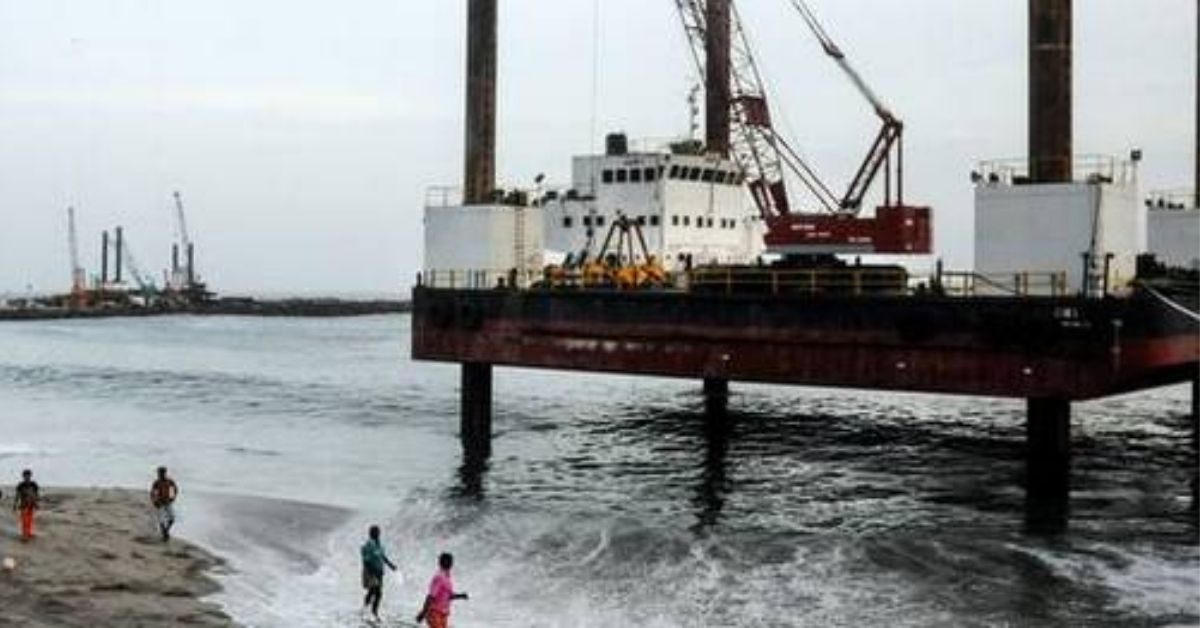Adani Ports and Special Economic Zone Ltd (APSEZ) has sought a five years extension from the Kerala government to complete construction and start operations at the international container transshipment terminal at Vizhinjam near Thiruvananthapuram.
According to the concession agreement signed on August 17, 2015, the port was slated to start operations on December 3, 2019 which could be pushed to August 3, 2020.
Varied reasons
Adani Vizhinjam Port (AVPPL), the APSEZ unit developing the port, has blamed force majeure events such as the cyclone Ockhi in 2017, high waves, a National Green Tribunal order, the pandemic, the cyclone Tauktae in May this year, and reasons attributable to government authorities for overshooting the commercial operations date (COD) set by the concession agreement for the project.
Adani Vizhinjam Port has constructed 850 metres of the total breakwater of 3.1 km. Cyclone Tauktae damaged the structure from 676 metre onwards.
The force majeure clause absolves firms from meeting their contractual commitments for reasons beyond their control.
Arbitration process
Adani Vizhinjam Port has initiated arbitration proceedings to resolve the disputes arising from the delay in completing the project.
In its claims submitted before the three-member arbitral tribunal, Adani Vizhinjam Port has sought a time extension till December 2024 to start operations.
In its counterclaims submitted to the tribunal, the Kerala government has rejected the force majeure reasons cited by Adani Vizhinjam Port for the delay and said that the port developer was in “default”, multiple sources said.
The concession agreement allows the port developer a cure period of nine months from the scheduled completion date to rectify the default. Of this, there is no penalty for the first three months. For the balance six months, the Kerala government can levy liquidated damages at the rate of 0.1 per cent of the performance security amount for each day of delay in completing the project. This works out to ₹12 lakh a day or ₹3.6 crore per month.
The tribunal will determine how much of the claims can be admitted and can set a new timeline for the completion of the project, sources said.
Vizhinjam transshipment port
In July, APSEZ said it “will continue” with the work on building the Vizhinjam transshipment port, allaying concerns that the project has lost its relevance with the firm announcing plans in March to set up a container handling facility in rival Colombo port.
The Vizhinjam facility is designed to cut India’s dependence on Colombo — a regional transshipment hub — to send and receive cargo containers entailing extra time and costs for exporters and importers.
Annually, around 3 million twenty-foot equivalent units (TEUs) of India-bound cargo containers are transshipped at neighbouring country ports especially Colombo, Singapore and other regional ports, according to official estimates.
Port handling charges
Colombo, Singapore and Port Klang handle more than 85 per cent of this with Colombo alone handling about 2.5 million TEUs.
“Given the extra port handling charges incurred at the transshipment hubs, transshipment of cargo results in logistic cost inefficiencies for Indian industry. The additional port handling cost is to the tune of $80-100 per TEU, which could be saved if the container was imported/exported as direct gateway cargo instead of being transshipped,” the Maritime India Vision 2030, a ten-year blueprint for the maritime sector, pointed out.
“This offers a substantial opportunity for the development of transshipment ports on the Indian coast. Hence, we believe that our strategic investment in an ultra-modern deep draft Vizhinjam container transshipment terminal at Kerala indicates an excellent business opportunity,” APSEZ said in its annual report for 2020-21.
Towards strategic capacity addition, we will continue with the development work at Vizhinjam, APSEZ said.
Viability grant
The Vizhinjam project is entitled to receive a viability grant funding (VGF) of ₹1,635 crore to be shared by the Centre (₹818 crore) and the Kerala government (₹817 crore) to boost its viability, making it the first port project to be offered such a grant. Of this, ₹1,227 crore will be given during the construction phase and the balance during the operation period spanning 40 years extendable by another 20 years.
The VGF was the basis on which the bid was awarded to APSEZ, which quoted the least grant.
Source : The Hindu Businessline






